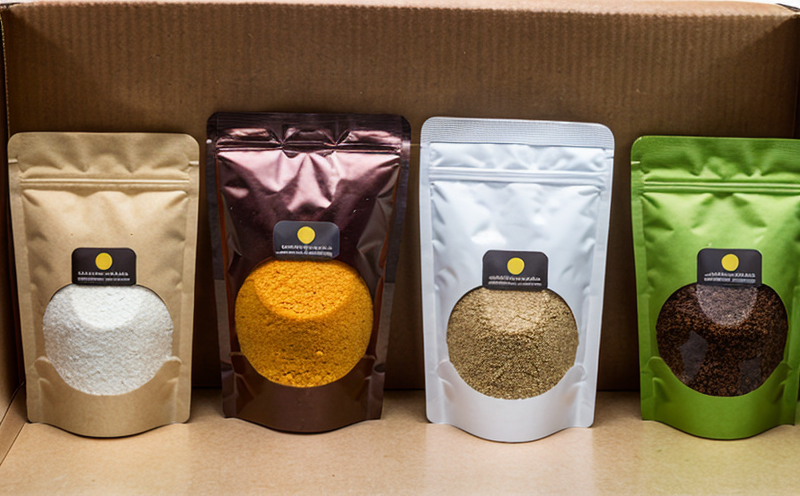Plasticizer Migration Testing in Food Packaging
In today's fast-paced world, ensuring food safety and consumer protection is paramount. One critical aspect of this involves assessing plasticizers used in packaging materials to prevent their migration into contact foods. This testing not only safeguards public health but also maintains brand integrity and regulatory compliance.
Plasticizers are commonly added to polyvinyl chloride (PVC) and other flexible plastics to enhance flexibility, reduce cost, and improve processing properties. However, when these plasticizers come into prolonged or frequent contact with food, they can potentially migrate through the packaging material into the food content. The presence of plasticizers in foodstuffs may pose health risks depending on their chemical composition and degree of migration.
Our service focuses specifically on plasticizer migration testing for food packaging materials to ensure compliance with international standards such as ISO 10397, ASTM F2127, EN 15684, and IEC 62321. These tests are essential to verify the safety of food contact materials (FCMs) used in various consumer products.
Testing involves several steps including selecting appropriate specimens, preparing them for testing, conducting the migration simulation under specified conditions, and analyzing the results. This process ensures that only safe FCMs enter the market, thereby protecting both consumers and manufacturers from potential legal and reputational risks.
The importance of this service cannot be overstated in sectors like food manufacturing, pharmaceutical packaging, and consumer goods. By adhering to rigorous testing protocols, companies can maintain a high standard of quality control and compliance with relevant regulations.
- Environmental and Sustainability Contributions:
- Reduces waste by ensuring only safe products reach the market.
- Promotes sustainable practices through better material selection.
- Encourages innovation in safer, more durable packaging solutions.
In summary, plasticizer migration testing is a vital component of food safety and product integrity. By leveraging our expertise, we help clients stay ahead of regulatory changes and ensure their products meet stringent safety standards.
Benefits
The benefits of our plasticizer migration testing service extend beyond mere compliance; they encompass enhanced reputation management, improved consumer trust, and reduced legal risks. Compliance with international standards not only protects the brand but also ensures that products are safe for use.
Our comprehensive testing process provides peace of mind to manufacturers by identifying potential hazards early in the development stage. This proactive approach allows businesses to address issues before they become public health concerns or costly legal disputes.
- Enhanced Reputation: Demonstrate a commitment to consumer safety and regulatory compliance.
- Increased Consumer Trust: Build confidence with customers who value product quality and safety.
- Reduced Legal Risks: Avoid costly litigation by ensuring all products meet safety standards.
- Improved Regulatory Compliance: Stay ahead of changing regulations to maintain a competitive edge in the market.
In addition, our service supports continuous improvement efforts within organizations. By providing detailed insights into potential migration risks, we assist clients in refining their manufacturing processes and selecting safer materials for future products.
International Acceptance and Recognition
The importance of international acceptance and recognition cannot be overstated when it comes to food contact materials testing. Our laboratory adheres strictly to global standards that are widely recognized across different regions, ensuring consistent quality and reliability.
Our commitment to international standards such as ISO 10397, ASTM F2127, EN 15684, and IEC 62321 means we provide services that meet the expectations of various regulatory bodies worldwide. This global alignment helps our clients export their products confidently while maintaining compliance with local regulations.
By participating in international testing programs, we ensure our methodologies are consistent with those used by other reputable laboratories around the globe. This consistency is crucial for businesses operating across multiple jurisdictions or exporting to countries with stringent food safety laws.
The acceptance of these standards also facilitates smoother trade relations and reduces barriers to entry into new markets. For instance, manufacturers seeking certification in Europe can rely on our services knowing they are meeting the requirements set by EU regulations like EN 15684.





